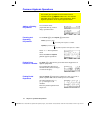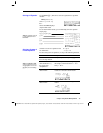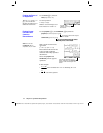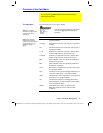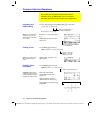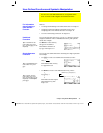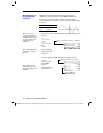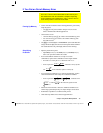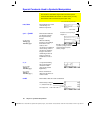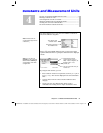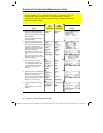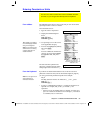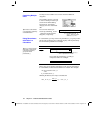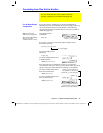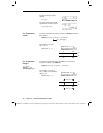
Chapter 3: Symbolic Manipulation 79
03SYMBOL.DOC TI-89/TI-92 Plus: Symbolic Manipulation (English) Susan Gullord Revised: 02/23/01 10:52 AM Printed: 02/23/01 2:12 PM Page 79 of 24
¦ Delete unneeded variables and/or Flash applications, particularly
large-sized ones.
− Use
2°
as described in Chapter 21 to view and
delete variables and/or Flash applications.
¦ On the Home screen:
− Clear the history area (
ƒ
8
) or delete unneeded history pairs.
− You can also use
ƒ
9
to reduce the number of history pairs
that will be saved.
¦ Use
3
to set
Exact/Approx = APPROXIMATE
. (For results that have
a large number of digits, this uses less memory than
AUTO
or
EXACT
.
For results that have only a few digits, this uses more memory.)
¦ Split the problem into parts.
− Split
solve
(a
ù
b=0,var
)
into
solve
(a=0,var
)
and
solve
(b=0,var
)
.
Solve each part and combine the results.
¦ If several undefined variables occur only in a certain
combination, replace that combination with a single variable.
− If
m
and
c
occur only as
m
ù
c
ñ
, substitute
e
for
m
ù
c
ñ
.
− In the expression
(a+b)
ñ
+ (a+b)
ñ
1
ì
(a+b)
ñ
, substitute
c
for
(a+b)
and
use
c
ñ
+ c
ñ
1
ì
c
ñ
. In the solution, replace
c
with
(a+b)
.
¦ For expressions combined over a common denominator, replace
sums in denominators with unique new undefined variables.
− In the expression
x
a
ñ
+b
ñ
+ c
+
y
a
ñ
+b
ñ
+ c
, substitute
d
for
a
ñ
+b
ñ
+ c
and use
x
d
+
y
d
. In the solution, replace
d
with
a
ñ
+b
ñ
+ c
.
¦ Substitute known numeric values for undefined variables at an
earlier stage, particularly if they are simple integers or fractions.
¦ Reformulate a problem to avoid fractional powers.
¦ Omit relatively small terms to find an approximation.
If You Get an Out-of-Memory Error
The TI
-
89 / TI
-
92 Plus stores intermediate results in memory and
then deletes them when the calculation is complete. Depending
on the complexity of the calculation, the TI
-
89 / TI
-
92 Plus may run
out of memory before a result can be calculated.
Freeing Up Memory
Simplifying
Problems




